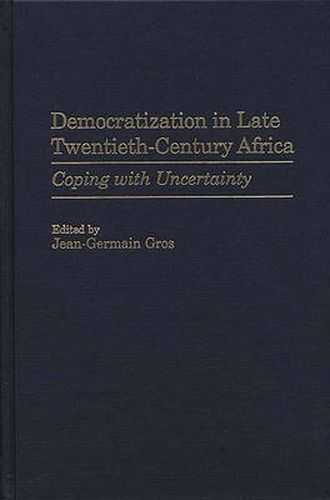Readings Newsletter
Become a Readings Member to make your shopping experience even easier.
Sign in or sign up for free!
You’re not far away from qualifying for FREE standard shipping within Australia
You’ve qualified for FREE standard shipping within Australia
The cart is loading…






Few would disagree that since 1990 Sub-Saharan Africa has undergone a process of political transformation. Where one-party systems once stood, multi-parties are now dominant; where heads of state once ruled autocratically, open elections have emerged. In this study, both African and non-African scholars take a critical look at the evolution and contradictions of democratization in seven African nations: Malawi, Cameroon, Nigeria, Ethiopia, Tanzania, Ghana, and Gabon, each at a different stage in the democratization process.
Some of these countries historically have not received much attention in North America. For example, little is known about Malawi, and Gabon has escaped notice outside the Francophone world. While other works have focused primarily upon the role that institutions have played in the democratization process, this study looks at individual leaders. Some of the authors were themselves participants in the reform movements in their home countries, and they examine the role that the military and the church played in the process. This volume also includes a discussion of why democratization has stagnated or been reversed in some nations.
$9.00 standard shipping within Australia
FREE standard shipping within Australia for orders over $100.00
Express & International shipping calculated at checkout
Few would disagree that since 1990 Sub-Saharan Africa has undergone a process of political transformation. Where one-party systems once stood, multi-parties are now dominant; where heads of state once ruled autocratically, open elections have emerged. In this study, both African and non-African scholars take a critical look at the evolution and contradictions of democratization in seven African nations: Malawi, Cameroon, Nigeria, Ethiopia, Tanzania, Ghana, and Gabon, each at a different stage in the democratization process.
Some of these countries historically have not received much attention in North America. For example, little is known about Malawi, and Gabon has escaped notice outside the Francophone world. While other works have focused primarily upon the role that institutions have played in the democratization process, this study looks at individual leaders. Some of the authors were themselves participants in the reform movements in their home countries, and they examine the role that the military and the church played in the process. This volume also includes a discussion of why democratization has stagnated or been reversed in some nations.